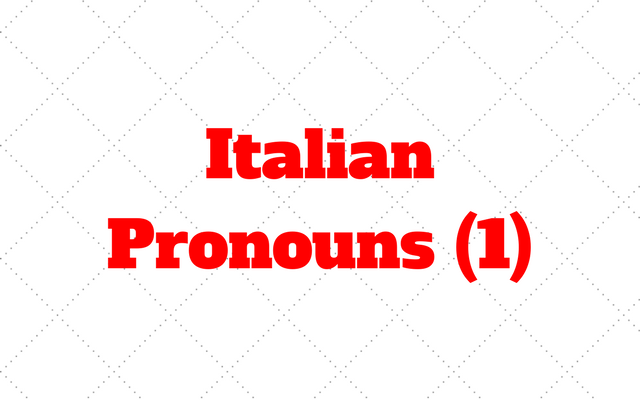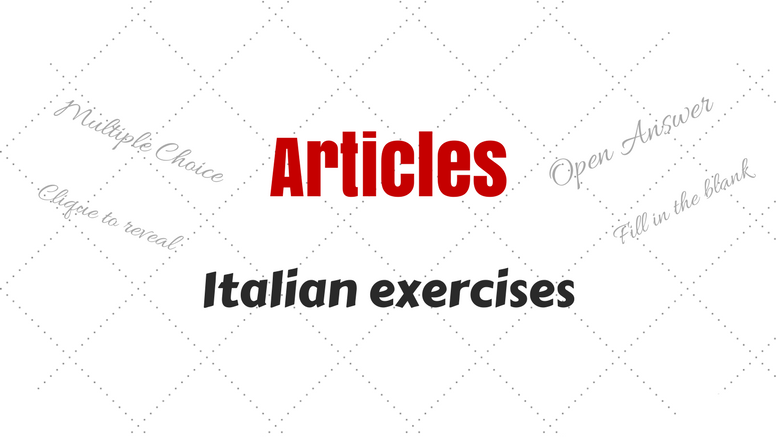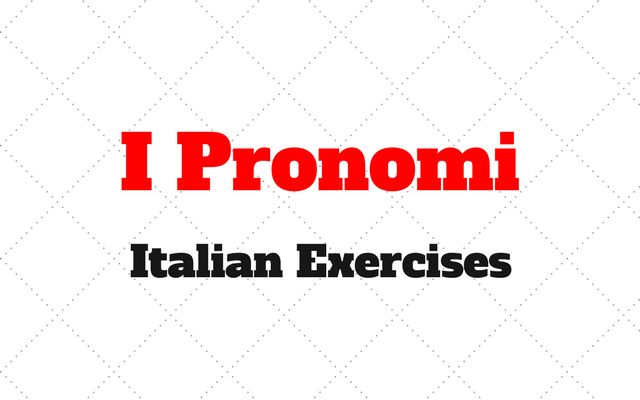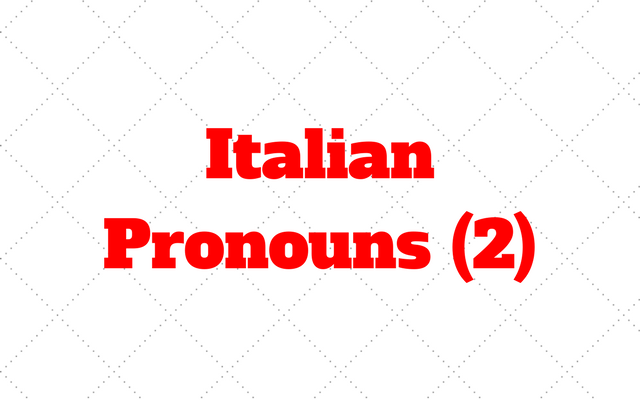
They are little words that help you replace nouns, to avoid repetitions. “Pronome” literally means → al posto del nome (instead of the noun). In Italian, there are many pronouns categories: they all substitute nouns, but in different ways… let’s learn a little more about their utilization!
I pronomi personali – Personal pronouns
| Subject
(Pronomi Soggetto) |
Object
(Pronomi complemento) |
||
| Tonic Form | Atonic Form | ||
| Io | me | mi | |
| Tu | te | ti | |
| Masculine | Egli/ Lui/ Esso | lui, sé (stesso), esso | lo, gli, ne, si |
| Feminine | Ella / Lei / Essa | lei, sé (stessa), essa | la, le, ne, si |
| Noi | noi | ci | |
| Voi | voi | vi | |
| Masculine | Loro/ Essi | Loro, sé (stessi), essi | li, ne, si |
| Feminine | Loro/ Esse | Loro, sé (stesse), esse | le, ne, si |
Worried? It seems a lot! Let’s take a deep breath and analyse the table together!
– Personal subject pronouns correspond to English: I, you, he, she, it, we, you, they. They are used in place of the subject.
Example:
– Maria e Chiara studiano in biblioteca → Loro studiano in biblioteca.
– Marco suona la chitarra → Lui suona la chitarra.
– Francesco, vieni stasera? → Tu vieni stasera?
*** Notice
1) In contemporary Italian Egli/ Ella/ Essi are not used so much anymore; instead, we utilize Lui/ Lei, Loro (which used to be only complements personal pronouns).
2) Esso, Essa (third person singular) refer to animals and things; while Egli/lui and Ella/lei refer to people.
– Personal object pronouns can’t stand alone without a verb. They have a tonic or atonic form:
– Tonic (or strong) form: have a strong emphasis on the sentence. In this case the pronoun comes after the verb.
For example:
Io ascolto te→ I want to underline I’m listening to you and not to someone else.
– Atonic (or weak) form: in this case the pronoun is not stressed in the sentence and comes before the verb.
Mi chiami più tardi? → Can you call me later?
Some examples:
– Carlo ha chiamato me → Carlo mi ha chiamato.
– Franco ha incontrato Giulia e le ha chiesto come stava. (He asked her)
– Ci sono tante cose che vorrei dirti → Ce ne sono tante
– Andrea ha invitato te e Sandra alla festa? → Andrea vi ha invitato alla festa?
– Noi domani verremo al Festival → Domani ci saremo anche noi!
Reflexive Pronouns
- mi
- ti
- si
- ci
- vi
- si
They are used when the action of the verb reverts to the subject:
Non si parlano più → They don’t talk to “themselves” (to each other) anymore.
Some examples:
– Mi guardo allo specchi ogni giorno → I look at myself in the mirror every day.
– Ci siamo svegliati alle 9 questa mattina → We woke up at 9 this morning.
– Mi chiedo dove sia finito Andrea! → I wonder where Andrea is!
– Vi sentite meglio oggi? → Are you feeling better today?
The pronoun “sé” is also reflexive:
– Non pensa che a sé → He only thinks about himself
– Marco ha molta stima di sé → Marco has a good opinion of himself






